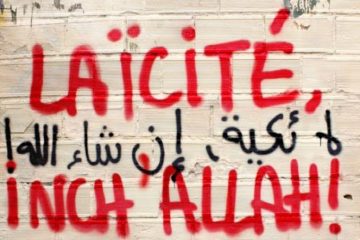Dinsel otoritelerin toplumsal fonksiyonlarını inceleyen bu çalışma, dinsel otoritelerin tümü için “ortak” kabul edilebilecek toplumsal fonksiyonlara odaklanmaktadır. Dini otorite tiplerinin toplumsal fonksiyonlarına dayanarak, bir tipolojinin çıkarılıp çıkarılamayacağı bu çalışmanın problemini oluşturmaktadır. Çalışmanın genelinde dinsel otoritelerin sosyolojik bir yaklaşımla incelenmesi ve dinsel otoritelerin bir tipolojisinin çıkarılması şeklinde iki amaç bulunmaktadır. Dinsel otorite kavramıyla peygamber, din kurucusu, rahip, veli/ermiş, âlim, şeyh, seyyid ve şaman kastedilmektedir. Dinsel otoriteler toplumda çok farklı görevler üstlenmekle birlikte üç özellikleriyle öne çıkmaktadırlar. Bunlar a)rehberlik, bilgi verme, b)hüküm verme, yargılama, arabuluculuk etme, c)hastalıkları iyileştirme işlevleridir. Çalışmada, dinsel otoritelerin toplumsal fonksiyonlarından hareketle üçlü bir tipleştirme modeli (üstaz/rehber, hâkim/yargıç ve hekim/tabip) öne sürülmektedir. İlk bölümde, dini otoriteye teorik bir giriş yapılarak, otorite, karizma, dini otoritenin göstergeleri gibi konulara değinilmiştir, ikinci bölümde, dini otoriteye tipolojik bir deneme bağlamında dinsel otorite tipleri, rehber/öğretmen, yargıç ve tabip olarak çalışmanın problematiğine uygun olarak temellendirilmiştir. Yeni bir tipolojinin amaçlandığı bu çalışmanın kapsamı, din sosyolojisi, dinler tarihi, İslam tarihi ve kültür tarihinin kesiştiği bir bağlam içinde belirlenmektedir.
Anahtar Kelimeler — Dini Otorite, Otorite, Sosyolojik Perspektif, İdeal Tip, Tipleştirme, Karizma
Atıf — Özbolat, A. (2015). Toplumsal Fonksiyonları Bağlamında Dini Otorite: Tipolojik Bir Deneme, Fırat Üniversitesi İlahiyat Fakültesi Dergisi, 20 (2), 1-24.
Makaleyi İndirReligious Authority in the Context of Social Functions: A Typological Trial
This study examines social functions of religious authorities. This study has focused to social functions that can be accepted “common” for all of religious aouthorities. The problem of the study consists of whether acquiring a typology of religious authorities by acting from social functions of religious authorities. It has two purposes. Firstly, examining with a sociological approach to the study of religious authorities in general of study and secondly the conceptualization of a typology of religious authorities. It is meant by concept of religious authority, prophet(peygamber), founder of religion(din kurucusu), priest(rahip), saint(veli), scholar(âlim), sheikh(şeyh), sayyid(seyyid) and shaman(şaman). In this study is proposed model of three-dimensional typification based on the social function of religious authorities (teacher, judge and doctor). These are functions: a) guiding, informing, b) adjudication, judgment, mediating c) healing illness. Religious authorities come into prominence with three characteristics as well as they are undertaking many different functions. It is mentioned issues such as indicators of religious authority, concepts of authority and carisma after a theoretical introduction to the religious authority in the first chapter. It is based as guide/teacher, judge and doctor in accordance with problematic of study types of religous authority in context of typological trial to the religious authority in the second chapter. Scope of this study that aims a new typology is identified in context of the intersection of history of culture, history of Islam, history of religions and sociology of religion as interdisciplinary study.
Keywords — Religious Authority, Authority, Sociological Perspective, Ideal Type, Typification, Carisma
Citation — Özbolat, A. (2015). Religious Authority in the Context of Social Functions: A Typological Trial, Review of the Faculty of Divinity of Fırat University, 20 (2), 1-24.
Download Article

